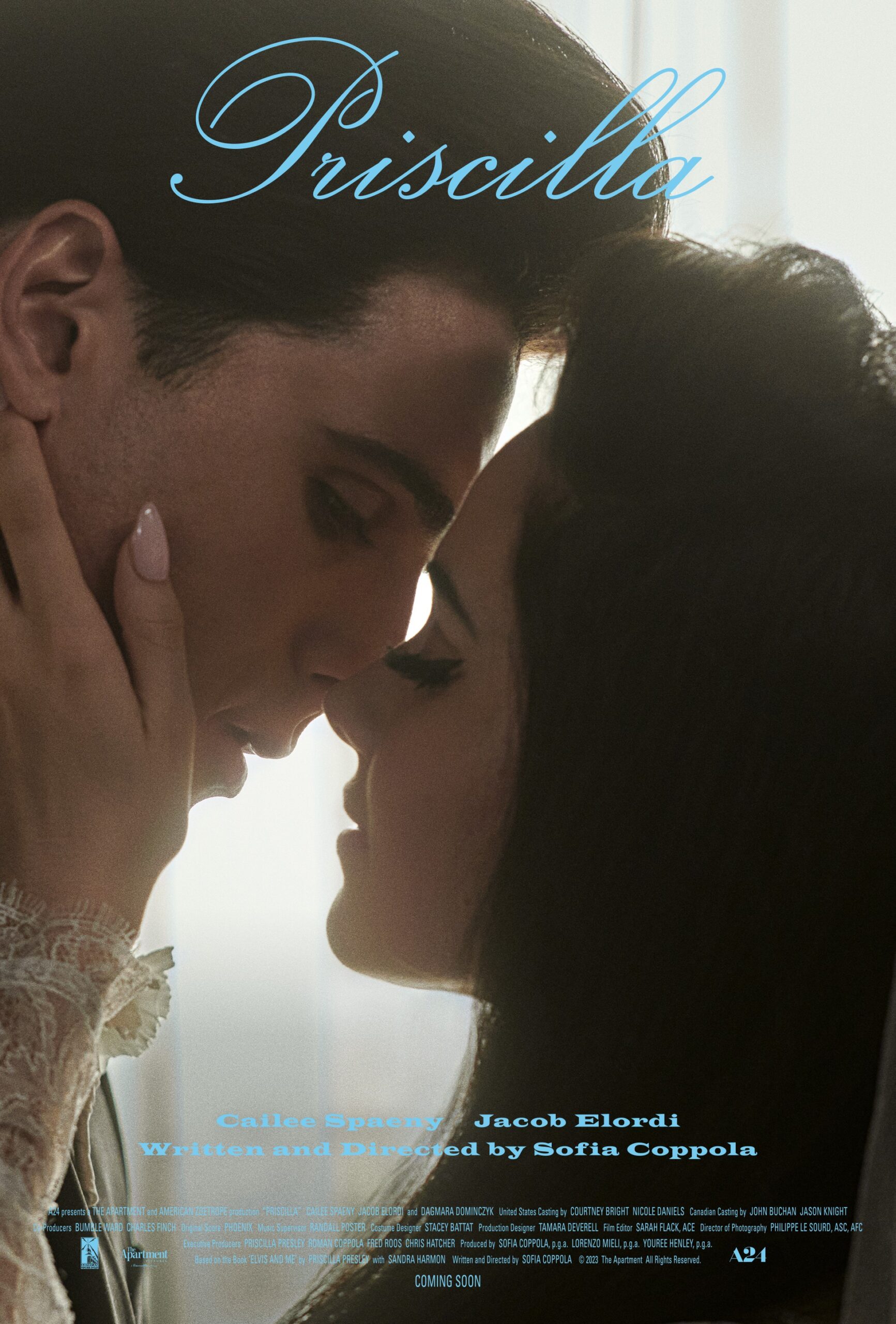“Priscilla” is finally here, a year after Baz Luhrmann’s “Elvis” biopic, Sofia Coppola gives theatre goers a deeper look into one of rock n’ roll’s most infamous love stories.
Serving as a sort of antithesis to the “Elvis” biopic that came out last year, Coppola’s film based off of the 1985 memoir “Elvis and Me” by Priscilla Presley and Sandra Harmon, is gripping and fascinating. Rather than glorifying the “King of Rock,” Coppola provides a glimpse into the more intimate side of Elvis and doesn’t hold back.
The film is told entirely from the perspective of Priscilla and follows their story from their meeting in 1959 Germany, when she was just 14 years old, to their divorce in 1973. And yes, the film doesn’t forget that the two met when she was just 14 and he was a 24-year-old famous rock star. It also doesn’t forget that Elvis enrolled her in a catholic school in Memphis so that she could live with him with her parents’ approval. These are both things that the “Elvis” biopic neglects to mention when taking a look at Elvis.
“Priscilla” also tells the audience about the other problematic parts of their relationship like the using of pills, the verbal and physical abuse, and manipulation through its visual exposition. Rather than spelling out why the things happening in their relationship are wrong, Coppola acknowledges the audience’s competence and lets us put it together for ourselves.
The visual storytelling and exposition is one of the film’s strongest assets and Coppola uses it to its fullest potential. With multiple close up and establishing shots of the environments Priscilla finds herself in, as well as the scenes that feature no dialogue and just non-diegetic and diegetic music. Scenes such as Priscilla setting out three dresses and then matching them with three custom engraved handguns, or her taking amphetamines to keep up with Elvis and his entourage. All are masterfully crafted to look and feel like the time period it takes place in.
We, the audience, get to see a side of the story that often gets overlooked, but is a crucial part of understanding the man behind the myth. The film’s effectiveness must also be attributed to its star Cailee Spaeny, who plays Priscilla, and her co-star Jacob Elordi, who plays Elvis. The two deliver captivating performances that show just how much research and dedication they put into their roles. I would even go as far to say that Elordi’s performance as Elvis outperforms Austin Butler’s performance in “Elvis.” But the emotions that Spaeny delivers, sometimes within seconds of each other, are incredibly beautiful to watch and is just a memorable performance.
Part of you ends up despising Elvis, but at the same time you see how much Priscilla loves the man despite everything. And you see how much love Elvis had for Priscilla when he wasn’t controlling or abusive. You see the vortex of emotions that came with their relationship and their marriage, and the two leads show you what it must’ve felt like.
The only thing I feel that the film lacks is the massive amount of enabling Elvis received from his entourage and family that is detailed in Priscilla’s memoir. It also only hints at the type of relationship Elvis had with his mother that might’ve caused some of his tendencies. And while the absence of these elements from the memoir is noticeable, it doesn’t hurt the film too much and can still stand tall without it.
This is a film that I would 100 percent recommend to anyone who can appreciate stellar performances, enthralling cinematography, and beautiful storytelling even without being a fan of Elvis or Priscilla. And if all you know about Elvis is from the Baz Luhrmann directed biopic, then this movie is an essential watch.


Comments are closed, but trackbacks and pingbacks are open.